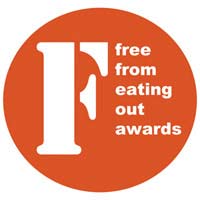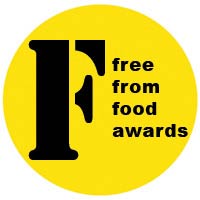 There’s an interesting article (and poll) in the BMJ this week, discussing whether gluten free food should be available on prescription.
There’s an interesting article (and poll) in the BMJ this week, discussing whether gluten free food should be available on prescription.
The Yes camp argues that prescriptions improve outcomes for people with coeliac disease—and thereby reduce cost to the NHS in the long run.
The No camp argues for the replacement of prescription food with a national voucher scheme or personalised health budget.
So in practice, both agree that gluten free food for people with coeliac disease should continue to be part-funded by the state, in order to keep costs to the NHS down; they’re just disagreeing with the best way of doing it.
What do you think?
Do go and read the article for more detail but here’s what we know:
- A gluten free diet is the only treatment for coeliac disease, and that lifelong adherence to the diet improves quality of life and reduces the risk of long term complications, which in turn would keep costs to the NHS down in the future.
- Although gluten free foods are now available in supermarkets, they are often not found (or not reliably found) in local convenience or budget store (potentially disadvantaging poorer people or those with limited mobility).
- Buying gluten free food in the supermarket is more expensive than the ‘normal’ equivalent—3 or 4 times more expensive.
NICE (National Institute for Health and Care Excellence) has quality standards for coeliac disease that highlights the role of prescriptions to ensure that a gluten free diet is affordable and accessible for all patients.
And yet the policy of restricting (or removing) prescriptions of gluten free food is being implemented all over the country.
The case for NO in the BMJ article talks about the cost and complexity of receiving the prescribed gluten free goods—and discusses the fact that the NHS ends up paying even more for a loaf of gluten free bread than we do in the supermarket.
No doubt this is true… but the fact that a system is expensive and complex doesn’t mean that it isn’t the right thing to do. It may just mean that the system needs an overhaul.
And the prices of the gluten free food in the supermarkets are kept lower than they might otherwise be because of the increasingly large people who opt to live gluten free out of choice, but are not diagnosed with coeliac disease.
It is a difficult topic in these straitened times. But I think that we, the British public, should continue to part-fund gluten free food for those diagnosed with coeliac disease. (Coeliac Daughter is no longer in receipt of free prescriptions, so I’m not biased!)
And maybe it is time to look seriously at a new way of managing the process.
 |
I’ve written a book summarising what we’ve learnt over 20 years of dealing with the gluten free diet, and it might be just what you’re looking for. It packs the lessons we’ve learned into what I hope is a helpful and straightforward guidebook. It’s available on Amazon, as a paperback or for your Kindle… |



